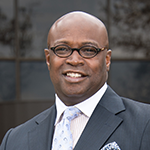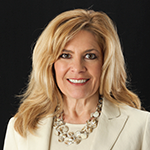
When she came to this country from Cuba in the 1960s, Nestor Plana’s mother asked him for something. She wanted her son to promise that he would never leave her in a nursing home. Several years later, she grew ill, and Plana’s father became her primary caregiver. She died in her husband’s arms after 62 years of marriage.
Plana never forgot those events. Driven by a passion to help people, he started his career in health care at a hospital in Miami, Florida, where he became an orderly in 1982. By 1996, Plana was in charge of business development. Later, he started his own health plan. And today, he runs one of the fastest-growing health-care organizations in the nation: Independent Living Systems (ILS).
ILS delivers community-based programs designed to help frail, chronically ill, and special-needs patients reside within their community, avoiding long, unwanted, and costly hospital and nursing home stays. Plana acknowledges that nursing homes provide important services, but says they are crowded with people who should have other options. “Seventy percent of people in nursing homes wouldn’t need to be there if we had the right infrastructure in the community to support them,” he explains. “That’s what we are doing. We’re taking people from the nursing home and putting them back in the care of the community.” The average cost of a year-long stay in a nursing home is $60,000. ILS is proving its model can reduce those costs to $25,000. “The costs are better, the quality is better, and it’s what the patient prefers,” Plana says.
It’s no secret that an aging population will need more health-related services. By 2030, there will be more Americans over the age of 65 than kids 5 and under. “We can’t afford to simply maintain the status quo in health care,” Plana says, adding that his model benefits federal governments, states, and patients who are more comfortable at home than in an institution.
Plana wants to make ILS a driving force in health-care innovations and services by reducing costs and improving quality for patients with high needs. Started in 2001, ILS enables health plans to enter the long-term care space. Plana and his partners offer five services: managed long-term home care, nutritional support services, comprehensive care management, care transition services, and third-party solutions.
ILS has developed an award winning, cloud-based technology platform called eCare central. This proprietary platform captures, analyzes, and processes medical data to develop individualized member-centric care plans. “We’ve built the technology to enable care managers and caregivers to deliver personalized services in a simplified and efficient manner,” Plana says. The company also employs registered dieticians who assess the nutritional needs of their members, resulting in customized profiles and menus for home-delivered meals. While other agencies and organizations provide similar services, care is often fragmented. ILS wants to be the one place where individuals and caregivers go.
2014 will be a big year for ILS. The company expects to double its staff and revenue. One of the drivers of this growth is the Affordable Care Act, which covers individuals who have not had access to health-care coverage. Through the financial realignment of health-care services, some states allow individuals that qualify for Medicare and Medicaid, known as dual eligible, to enroll in a plan that covers home-care services. ILS has participated in the implementation of these programs in Illinois and in New York for dual eligibles. ILS also partners with pharmaceutical and medical-device companies in facilitating successful transitions of their patients from the hospital back into the home.
While educating an industry takes time, ILS is gaining ground. “We simply have to change,” Plana says. “The US has a system that supports illness, not health and recovery.” Eighteen percent of admitted Medicare patients are readmitted within 30 days for the same condition; providers operate in silos, as primary care physicians are not typically aware when their patients seek services elsewhere; and patients can get bounced from hospitals to clinics to nursing homes and back to hospitals. ILS steps in to coach, train, equip, and counsel. Through home- and community-based services and nutritional programs, ILS can reduce readmissions by 50 percent. Many years after his mother’s death, Plana is passionately driven to help people like her. His company educates caregivers like his father, providing the tools, support, and resources necessary to help them care for an aging loved one.

